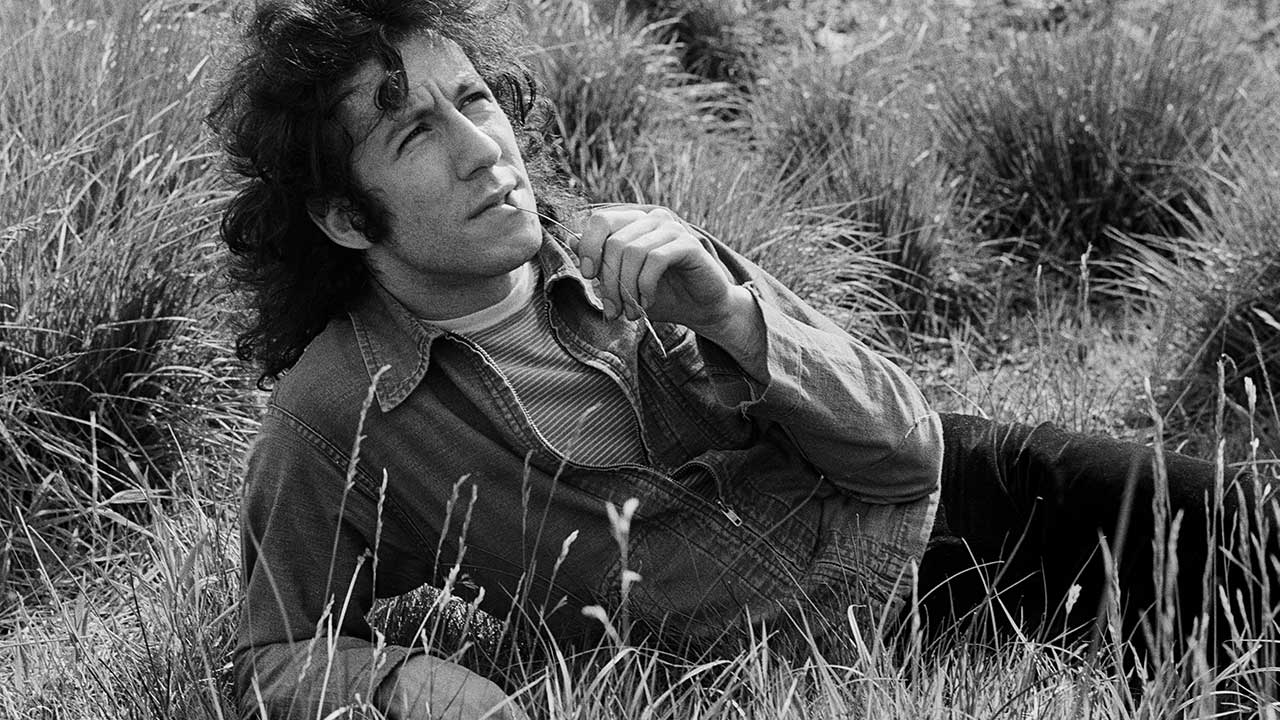Peter Green: a tribute to a reluctant genius
Fleetwood Mac co-founder Peter Green never really considered stardom as a career option. He had other ideas

I only met Peter Green once. Actually, if I'm honest, our interaction is probably better described as a brief encounter. It was sometime in the 90s. I can't really be more specific than that. I was working in a music shop in Glasgow called McCormacks. Don't look for it; it's not there anymore.
Anyway, as I headed towards the shop after lunch I saw this man standing next to the doorway. I nodded a quick hello then ground to a halt on my heels as I realised who it was. It was Peter Green.
I said, "Hello Mr Green, how are you?"
He smiled back but didn't reply.
As I searched for something to say I suddenly became aware that I was making him feel uncomfortable. I said, "It's a pleasure to meet you. I'm a big fan..."
I then left him in peace.
OK, as rock anecdotes go it's not up there with finding the right colour M&Ms for Ozzy. But the reason I knew of Peter Green at all was that as a guitarist I'd recently gone from making a horrible noise to discovering the concept of tone and feel. As any guitarist will tell you, discussions of tone and feel inevitably lead back to the Peter Green of the mid to late 1960s.
Sign up below to get the latest from Classic Rock, plus exclusive special offers, direct to your inbox!
With Greeny's sad passing on July 25 all the usual quotes and anecdotes about the man's life have resurfaced. He replaced Eric Clapton in John Mayall's Blues Breakers in July '66. He himself left in 1967 and formed Fleetwood Mac with drummer Mick Fleetwood and bassist John McVie. His '59 Gibson Les Paul was rewired incorrectly and it had a unique sound. He sold it to the late great Gary Moore. Kirk Hammett of Metallica has it now. Oh, and Greeny experimented with drugs. It didn't end well.
The best quote? BB King said Peter had the sweetest tone he'd ever heard. "He was the only one that gave me the cold sweats." You'll see that quote a lot but it's absolutely the one that sums up why Peter Green is so important.
Green was thrust into a competitive scene in mid-60s London. The British Blues thing was all the go and cats like Eric Clapton, Jeff Beck and future Rolling Stone Mick Taylor were recasting Chicago blues in their own image. No matter how deep that talent pool ran however Peter Green seemed to understand the music that little bit more.
Listen to Need Your Love So Bad. There's no showboating. He says so much and with as few actual notes as possible. And he could sing. It's a mesmerising performance. That's why BB got the cold sweats. He approached blues in the same way. Ring as much emotion out of every note as you can. In that regard, this young British kid played like a Chitlin' circuit veteran. There's also no ego in his playing, and that's something that extended to the man's interactions with the people around him...
"Peter could have been the stereotypical superstar guitar player and control freak,” Mick Fleetwood told The Irish Times. “But that wasn’t his style. He named the band after the bass player and drummer, for Christ’s sake. He was also always willing to give as much space and creative freedom to other members, like guitarist Jeremy Spencer, and songwriter Danny Kirwan, at the expense of his own creativity."
Peter Green will be described as a troubled soul. That's fair. He was however also a genius. The man who composed Albatross, Oh Well and Black Magic Woman. He was the sensitive soul behind Man Of The World, the power that fuelled The Green Manalishi (With The Two Prong Crown)... and then he left the band.
He'd never really considered stardom as a career option. He had other ideas.
"The blues - it's kind of like a religion, really, he said. "The marvellous thing about lack of planning is that failure comes as a complete and utter surprise. I think that every artist dreams of renewing the forms which came before, but I think very few can be considered to have achieved that."
There had been some failure but it's just as true that he breathed new life into the blues. He wasn't the only one to do that but no one did it quite so eloquently or respectfully.
As Mick Fleetwood said in tribute, Fleetwood Mac had "trail-blazed one hell of a musical road for so many to enjoy".
He continued: "For me, and every past and present member of Fleetwood Mac, losing Peter Green is monumental. No-one has ever stepped into the ranks of Fleetwood Mac without a reverence for Peter Green and his talent, and to the fact that music should shine bright and always be delivered with uncompromising passion."
Personally, I wish I'd had a chance for a proper chat with Peter Green that day I bumped into him in Glasgow. I was standing next to greatness and I wanted to let him know how momentous an occasion it was for me, even though he probably heard it from someone everyday of his life.
In the end, I'm glad I thought better of it and had the sense to give the man some peace. After all, no one deserved peace more than Peter Green.

Ed Mitchell was the Editor of The Blues Magazine from 2012-16, and a contributor to Classic Rock and Louder. He died in October 2022, aged 52. A one-time Reviews Editor on Total Guitar magazine from 2003, his guitar-modding column, Ed’s Shed, appeared in print on both sides of the Atlantic (in both Total Guitar and Guitar World magazines), and he wrote stories for Classic Rock and Guitarist. Between them, the websites Louder, MusicRadar and Guitar World host over 400 of his articles – among them interviews with Billy Gibbons, Paul Weller, Brian Setzer, profiles on Roy Buchanan, Duane Allman and Peter Green, a joint interview with Jimmy Page and Jack White, and dozens of guitar reviews – and that’s just the ones that made it online.
